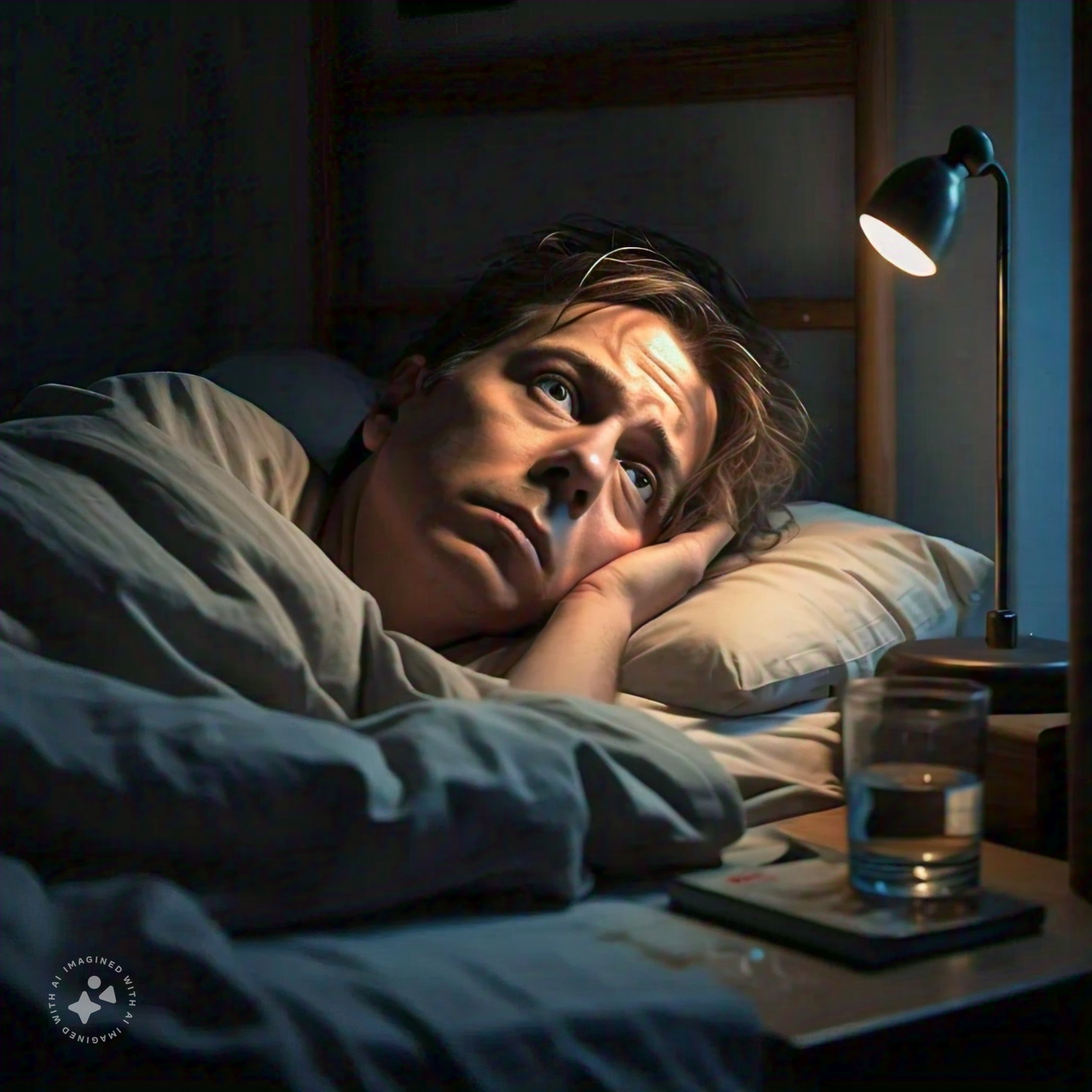Insomnia: Unlocking the Secrets to Better Sleep in 2025
Insomnia is a sleep disorder that affects millions of people worldwide. It is characterised by difficulty falling or staying asleep, which can lead to feelings of fatigue, irritability, and decreased productivity during the day. In some cases, insomnia can be caused by a specific event, such as stress, illness, or a schedule change, but for many people, it is a chronic condition that requires ongoing management. Insomnia is defined as difficulty falling or staying asleep, accompanied by daytime impairments related to sleep troubles.
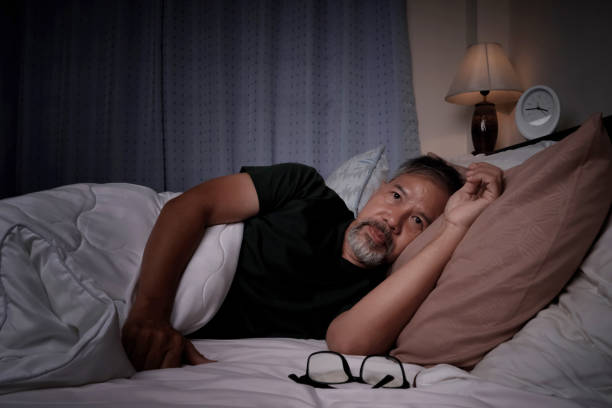
Are you one of the millions of people who struggle with sleeplessness? If so, you know how frustrating and debilitating it can be to lie awake at night, unable to drift off to sleep. Fortunately, you can use many strategies and techniques to overcome insomnia and finally get the rest you need.
This comprehensive guide will cover everything you need to know about insomnia, from its causes to effective treatments. Whether you’ve been dealing with sleepless nights for years or have recently developed insomnia, our guide will provide you with the tools and knowledge you need to improve your sleep quality and wake up feeling refreshed. So let’s dive in and unlock the secrets to better sleep!
2. Different Forms of Insomnia

Other than chronic sleeplessness disorder, short-term insomnia disorder, and other insomnia disorders, there are no other types of insomnia included in the current classification system for sleep disorders. However, medical professionals and researchers might employ terms that were previously used to identify different forms of insomnia.
- Paradoxical Insomnia, also known as sleep status misperception, is a condition in which a person believes their sleep is being significantly disturbed, yet there is no other evidence to support this belief. The amount of sleep that paradoxical restlessness obtains may be significantly underestimated.
- Sleep onset Insomnia: This condition, which can occur both chronically and temporarily, is characterised by difficulty falling asleep when one initially settles down for the night.
- Sleep maintenance Insomnia: Having trouble sleeping through the night. People with either chronic or temporary sleep disorders may experience a condition known as sleep maintenance insomnia. Adults in their middle years and older who suffer are more likely to have trouble staying asleep than falling asleep.
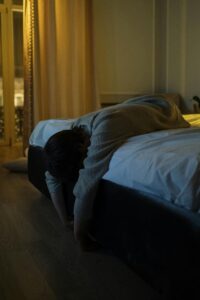
Behavioural Insomnia of Childhood: In the past, this term described a child’s inability to go to sleep in the absence of certain objects or rituals. This type of insomnia, for instance, can be experienced by a young child who needs his or her beloved stuffed animal to fall asleep.
- Deadly Insomnia: Despite the name containing the word “insomnia,” fatal insomnia is not a form of sleep disorder. Instead, fatal insomnia, also known as fatal familial insomnia (FFI), is an extremely rare genetic condition that damages the brain gradually. A family-related fatal neurological condition that manifests a wide range of symptoms, including progressively worse sleep problems.
- Occasional Sleeplessness vs. Insomnia
Up to 35% of adults have symptoms of insomnia on occasion, such as difficulty sleeping or staying asleep. These periods of inability to sleep do not always indicate that a person has insomnia, a formally recognized sleep condition. Only when sleep issues become distressing and start to impact a person’s relationships or employment adversely are they diagnosed with such a condition.
The signs must last for at least three months for insomnia to be categorized as chronic.
3 Symptoms

The symptoms can vary from person to person, but some common symptoms include:
- Difficulty falling asleep or staying asleep
- Waking up frequently during the night
- Waking up too early in the morning
- Feeling tired or groggy during the day
- Difficulty concentrating or staying focused during the day
- Mood swings, such as irritability or anxiety
- Reduced energy or motivation
- Headaches or other physical discomforts
- Difficulty with memory and learning
It’s important to seek medical help if you’re experiencing symptoms of insomnia, as untreated insomnia can have a serious impact on your health and well-being. A doctor can help determine the underlying cause of your sleep difficulties and recommend the best course of treatment for your specific needs.
4. Risk Factors
Several factors can increase the risk of developing sleep disorder, including:
- Age: It is more common in older adults.
- Mental health disorders: People with depression, anxiety, and other mental health conditions are at higher risk of developing insomnia.
- Chronic medical conditions: Chronic pain, cardiovascular disease, and other medical conditions can increase the risk of this problem.
- Medications: Certain medications, such as stimulants, can disrupt sleep and increase the risk of insomnia.
- Substance abuse: Alcohol and drug abuse can cause insomnia, as can withdrawal from certain substances.
- Work schedule: Night-shift workers and people who have irregular work schedules are at higher risk of developing such conditions.
- Stress: Chronic stress can interfere with sleep, leading to the problem.
- Poor sleep habits: Poor sleep habits, such as staying up late and using electronic devices before bed, can contribute to insomnia.
- Having a woman’s gender or being born with one.
- Lower socioeconomic level.
- History of light sleep.
- History of sleep problems when under stress; recent stressors in life, such as a job loss, divorce, or death of a loved one.
- Tendency to worry excessively about one’s health.
- Mood disorders, such as depression; and anxiety disorders.
- Specific medical conditions, such as restless legs syndrome or gastroesophageal reflux disease (GERD).
- Excessive caffeine or other stimulant use.
- Unstable living situations or domestic abuse.
- Developmental problems in children.
- Having an immediate family member who suffers from insomnia.
- Not maintaining a regular sleep schedule.
It’s important to address any underlying medical or psychological conditions, as well as to make lifestyle changes, such as developing a consistent sleep schedule and reducing exposure to screens, to reduce the risk of this problem.
5. How Is it Diagnosed
The inability to sleep is diagnosed through a combination of self-reported symptoms and a clinical evaluation. The following steps are usually involved in the diagnosis of insomnia:
- Medical history: Your doctor will take a detailed medical history, including any medications you’re taking and any underlying medical conditions that may be causing your sleep problems.
- Sleep diary: Your doctor may ask you to keep a sleep diary for several weeks to track your sleep patterns and habits.
- Physical examination: Your doctor will perform a physical examination to rule out any underlying medical conditions that may be causing your sleeplessness.
- Sleep study: In some cases, your doctor may recommend a sleep study, which is a test that monitors your sleep patterns and brain activity while you sleep.
- Psychological evaluation: Your doctor may also refer you for a psychological evaluation to rule out any underlying mental health conditions, such as anxiety or depression that may be contributing to your insomnia.
Based on the results of these tests, your doctor can diagnose insomnia and recommend the most appropriate treatment for your specific needs. It’s important to seek medical help if you’re struggling with the problem, as untreated insomnia can lead to several health problems and decrease your quality of life.
This post contains Affiliate links, which means if you purchase through this link, I may receive a portion of the earnings.
6. Preventive Measures
While it’s not always possible to stop a sleep disorder, following this advice may nevertheless enable you to obtain the rest you require:
- Even on the weekends, make an effort to keep your sleeping and waking hours roughly the same.
- Establish a nightly ritual that will relax you and make you ready for sleep.
- Avoid coffee in the afternoon. Alcohol, or nicotine, especially close to bedtime
- A couple of hours before nightfall, turn down the lights and put away any electronic gadgets. Keeping the bedroom dark and quiet, and forgoing watching television before bed
- Get some fresh air and exercise on a daily or weekly basis, if you can.
- Avoid taking naps, especially if you know they will keep you up at night, as you become aware of mental health symptoms like depression and anxiety, work with a therapist to address them.
The following sleep hygiene techniques can also be employed to encourage sound sleep.
- Refraining from checking the time to see how long it takes to fall asleep. Getting out of bed if falling asleep is taking too long or causing.
- Avoid eating large meals too close to bedtime.
- For parents of kids with sleeping issues, setting strict, enduring guidelines surrounding
7. Natural Herbs, Fruits and Spices to Help Contain Restlessness

Several natural remedies may help to improve sleep and reduce the symptoms of insomnia, including:
-
- Herbs: Some herbs, such as valerian root, passionflower, and chamomile, have natural sedative properties that may help to improve sleep.
- Fruits: Fruits, such as cherries and bananas, contain natural substances that can help promote sleep.
- Spices: Some spices, such as lavender and cinnamon, have been used for centuries to promote relaxation and improve sleep.
- https://amzn.to/3n8By3y

Lavender Oil for Massage and Aromatherapy - Melatonin: Melatonin is a hormone produced by the body that helps regulate the sleep-wake cycle. Some people with insomnia may benefit from taking a natural melatonin supplement before bed.
- https://amzn.to/3TvnPAi
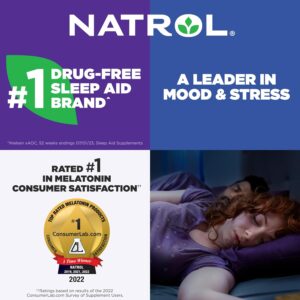
- Magnesium: Magnesium is a mineral that helps to regulate sleep and reduce symptoms of anxiety, which can contribute to insomnia.https://amzn.to/49AD41j

It’s important to consult with a doctor before using any natural remedies for insomnia, as some may interact with medications or have other side effects. Additionally, some remedies may not be safe for everyone, particularly for people with certain medical conditions.
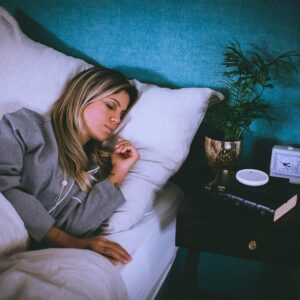
8. Use of Sleeping Pills for Sleep Disorder
The use of sleeping pills for sleeplessness is a matter of personal preference and depends on several factors, such as the underlying cause of insomnia and individual medical history. Sleeping pills, also known as hypnotics, can be effective in helping people with insomnia to fall asleep and stay asleep. However, they can also have side effects, such as grogginess and impaired cognition the next day, and can be habit-forming if taken for an extended period.
Additionally, sleeping pills may not address the underlying cause of insomnia and should not be used as a long-term solution. Instead, they should be used with other treatments, such as cognitive-behavioural therapy for insomnia (CBT-I), to help improve sleep and reduce the need for sleeping pills over time.
It’s important to discuss the use of sleeping pills with a doctor before starting treatment, as they can interact with other medications and may not be safe for everyone. In some cases, alternative treatments, such as relaxation techniques or lifestyle changes, may be more appropriate.
Disclaimer: The contents of this article are intended to raise awareness about common health issues and should not be viewed as sound medical advice for your specific condition. You should always consult with a licensed medical practitioner before following any suggestions outlined in this article or adopting any treatment protocol based on the contents of this article.
If you enjoyed this article, please like and share it with your friends, and don’t forget to subscribe for more great content!
The Best Healthy Snacks for Weight Loss in 24/25
Sleep and Fitness 24/25: Understanding the Importance of REM Sleep and Tips for Quality Sleep
